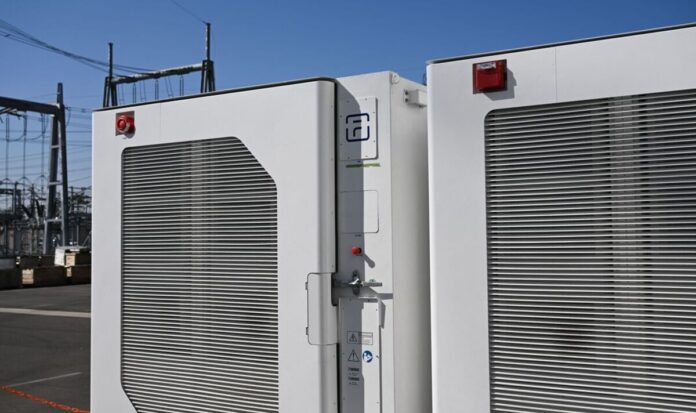As Britain faces the threat of power cuts this winter, a startup has announced that will build a major new battery storage site. Express.co.uk was told that this site, strategically located in Heysham to participate in multiple energy markets, will store enough energy to power 200,000 homes for a two-hour period. Russia’s invasion of Ukraine kicked off a fossil fuel energy crisis across Europe, as countries that are been squeezed out of Vladimir Putin’s gas supplies have been scrambling to secure natural gas supplies. Aside from driving up the price of gas, there is also increased competition for existing supplies, which has led the National Grid to warn that it may not secure enough gas and electricity supplies this winter.As part of the efforts to tackle this issue, Kona Energy, a UK-based firm, has struck a deal with Gore Street Energy Storage Fund (GSF) for a 200MW project in North West England.Once constructed, this site will be one of the biggest battery storage facilities in Europe, storing electricity generated a variety of sources, including renewable power. This could be a valuable lifeline to hundreds of thousands of households, particularly as the National Grid is planning to impose three-hour power cuts this winter should it fail to acquire enough energy supplies.Speaking to Express.co.uk, Andy Willis, the founder of Kona Energy commented: “This project could power up to 200,000 homes for 2 hours when constructed, which we hope to achieve as soon as feasibly is possible. Energy lifeline as one of ‘Europe’s largest’ site to power 200,000 homes during blackout ? (Image: Getty) Such a site could be critical during blackouts (Image: Getty)”Battery storage systems are an irreplaceable piece of the renewable puzzle. Without them, a vast amount of clean energy will continue to be wasted at great cost to the billpayer.”The more of these projects online, the stronger our position will be in the turbulent global energy market – there is no time to waste.”Even before the threat of a blackout was looming over Britain, battery storage sites were seen a critical aspect of boosting the UK’s energy security, and helping slash bills. For intermittent renewable energy sources like wind and solar power, such sites can be used to store electricity during times when wind speeds are high or the Sun is shining bright. READ MORE: Energy crisis: UK to build huge battery storage to slash £1bn waste The cost of energy has gone up (Image: Express)However, given the UK’s lack of adequate storage systems, much of this electricity often goes unused, and the wind turbines are ordered to be turned off because the National Grid cannot take any more power.Mr Willis previously told Express.co.uk that the UK is throwing away a golden opportunity at a time when household energy bills have reached record highs.He warned that since most powerful wind farms are far away from busy centres like London or Manchester, the UK is forced to turn them off during times of high supply to prevent an overload of the National Grid.To solve this wastage of energy, Kona has decided to build its facility at the landing point of six offshore wind farms, including one of the world’s largest, the Walney wind farm.DON’T MISS: US on receiving end of warning as weapons may fall into Russia’s hands [REVEAL]British Gas issues dire warning as UK has only nine days of gas left [ANALYSIS]UK’s first planned gigafactory saved from the brink of collapse [REPORT] Batteries can store energy from powerful offshore wind farms (Image: Getty) The site could also save on energy bills (Image: Getty)According to Mr Willis, this storage facility is being built to connect to the B7a constraint boundary, which is one of the most constrained areas in the UK where wind farms and other low carbon technologies are regularly curtailed.According to Kona Energy, this project will help to alleviate grid constraints, reduce energy bills and increase the utilisation of renewable energy.Mr Willis added that even though these wind farms have to be turned off at certain points, the contracts that the Government signed mean that the UK still has to pay the wind farm developers, essentially paying a billion pounds a year to turn off wind turbines.A statement from Kona said: “Aside from managing increasing grid constraints, the battery system will provide crucial local grid services, in the form of inertia and reactive power support. This will be increasingly important following the closure of the Heysham nuclear power stations in 2024 and 2028.”
Energy crisis lifeline as major storage site to power 200,000 homes
Sourceexpress.co.uk
RELATED ARTICLES


